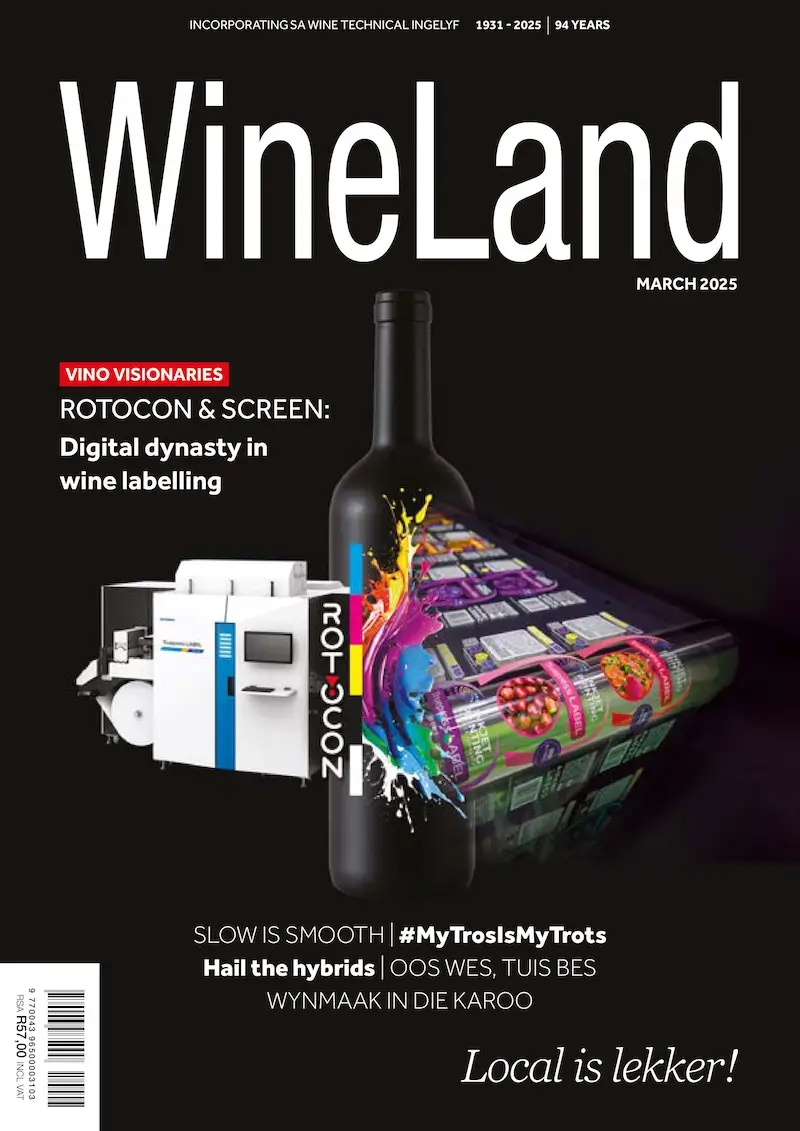While the Ever Given’s sticky situation in the Suez channel shone the spotlight on a range of challenges in the global shipping industry, frustration is mounting among South African wine exporters over huge backlogs at Cape Town Port Terminal.
South African wine exports represent nearly half of its total production and amounted to 330.2 million litres in the year ending 28 February 2021, representing a 6% volume growth year on year. Of these exports, 41% was packaged and 59% bulk. The UK, Germany, Netherlands, USA and Sweden are the top five markets for South African wine.
Although wine businesses were relieved to start exporting again after the lifting of a five-week ban on wine exports mid-April last year, it has been a bumpy ride for an industry that has been heavily reliant on its export component due to a combined 20-week ban on local sales. Building on reduced capacity and intermittent closures due to Covid-19, a substantial increase in backlogs at the Cape Town Port Terminal has serious repercussions for many wineries.
Why the backlog?
For one, there is a global shipping container shortage brought on by a sudden spike in demand for imported goods, especially between the East and West. Following an initial downward trend due to Covid-19, global trade has bounced back in the last part of 2020 and continues to grow. According to global freight forwarder JF Hillebrand’s March State of the Industry Report, trade has shown no signs of slowing down since the start of 2021, and while the Transpacific has proven to be the strongest route, all trade, regions and ports continue to record significant year on year growth.
“In South Africa, the container shortage is exacerbated by vessels bypassing the Cape Town Port Terminal due to congestion, strong winds that complicate offloading and the fact that many shipping lines opt for more lucrative routes,” says Maryna Calow, communications manager for generic export marketing body Wines of South Africa (WoSA). “This means that consignments are waiting for excessively long periods to be loaded onto vessels.”
In a recent Cape Town Port Report, JF Hillebrand also cites the breakdown of equipment, IT interruptions and weather delays as some of the main causes of congestion, along with reduced capacity which affect truck movements inside the port. “In many cases the equipment used at the port and container terminal is aged and not functioning optimally,” Maryna says. “Some equipment can only operate in winds up to a certain strength and thereafter become dangerous to operate.”
Losing face, money and cellar capacity
“SA wine exporters are struggling to save face with their importers due to the delay,” Maryna says. “It comes across as yet another challenge of doing business with us, and if this situation were to continue, we may definitely lose listings in the longer term.”
“We have great relationships with our customer base and keep them updated, while considering alternatives such as switching container formats where possible,” says Gerhard van der Watt, CEO of Perdeberg Group (Pty) Ltd. “However, frequent shipping delays are starting to frustrate customers and at any point they can divert to other supplying countries. South Africa cannot be seen as unreliable; it will kill our business off very quickly.”
“It’s extremely frustrating to call or advise clients after we have confirmed loading weeks in advance and done everything in our power to get the wines export ready, that their consignment has not left in time due to various reasons that are beyond our control in port,” says a South African wine exporter who wishes to remain anonymous.
“Most of our clients have been very accommodating thus far, but we’ve had understandably unhappy clients who had delays for almost up to two months after we loaded in time, but multiple vessels short-loaded shipments or omitted the port altogether. The shortage of containers and ineffective port and depot management has put extreme pressure on our warehouses, which need to plan loadings.”
Roodezandt RF Wine Cellar says they’ve had delays of anything between two and four weeks. “Wines ordered for promotional purposes are delayed to the point that it completely misses its deadline.”
The delays have also resulted in unforeseen costs. “The fact that we are mid-harvest at maximum tank capacity, means that export-ready wines that cannot be loaded have to be stored elsewhere at great cost. Add to this the loading, trucking, off-loading, storing and the reverse again when shipping can take place,” says Gerhard.
Wineries may have to reapply for expired export certificates at an additional cost and pay overtime for containers to be loaded after hours, or for transport companies whose drivers have to wait for days in long queues in the harbour, being redirected from one depot to another. “We’ve seen footage of kilometres of trucks in line at the port,” Gerhard says. “Transporters are beginning to divert their trucks to other business to avoid the harbour, as that route is simply becoming unprofitable.”
The backlogs even affect the 2021 harvest. “With large quantities of unsold wine in our tanks due to the local liquor bans, as well as a larger than expected 2021 wine grape crop, exports during this time would have been a small respite to help create capacity for the new harvest,” says Roodezandt. “However, due to the continuous delays, the cellar space that should have been cleared in accordance to our loading schedule can’t be cleared in time. This affects harvest planning, and we need to find ways to bring in the new wine, so that it will still be beneficial with the planned end-product in mind.”
Investment, creative solutions needed
According to Maryna, the wine industry is engaging with national government on a weekly basis, as well as with Transnet, Wesgro and the office of David Maynier, Western Cape MEC for Finance & Economic Opportunities, to intervene in the matter. “Apart from formalising the necessary directives to address the challenges, we have also requested funding to upgrade or replace the current equipment with more robust machines able to withstand the Cape’s infamous South-Easter.”
In the meantime, wine exporters are advised to stay in touch with their freight forwarders and build longer lead times into their processes. “We do know that Transnet Port Terminals are doing their utmost to alleviate localised problems, however the challenges are also of a global concern and we will continue to engage with the necessary parties to try and find ways to navigate them,” Maryna says.
“We anticipate some relief in terms of vessel turnaround time and the availability of empty containers from early April,” says Glen Steyn, economist at the Western Cape Department of Economic Development and Tourism and convener of the provincial Ease of Doing Business Task Team. “The need for structural interventions to improve the capacity of terminals in the Port of Cape Town to process cargo at the level of service required by the economy, has been escalated to the CEO of Transnet Port Terminals.”
“Yes, we have regular high winds that halt proceedings, but we also have go-slow operators in the harbour in a time when wine and fruit exports are at peak,” Gerhard says. “Surely the economic impact of these delays for the country should by now have resulted in innovative solutions?”
He suggests building up container stock in advance for peak periods, implementing windshields to load even during strong winds, having a stand-in workforce for when industrial action occurs, a night shift to continue loading, and even using alternative harbours such as Saldanha, with government incentives to entice shipping lines to anchor there.
“We really need creative solutions quickly, because once we have a reputation as a harbour to avoid, the economic knock-on effect is too ghastly to contemplate.”













